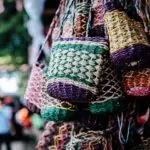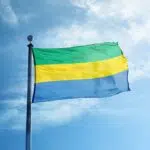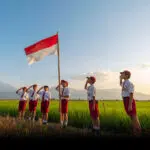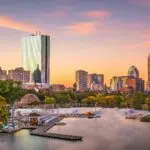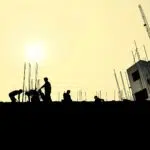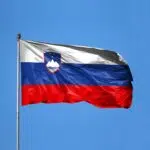Gabon Independence Day is celebrated on August 17 annually. This day marks the establishment of an independent country when, after more than a century, Gabon claimed its liberation from France. On this day, locals hold festivities, concerts, parades, and firework displays as a reminder of this freedom. It’s also a day to educate the younger generation and pass on the rich history of their country to make the feeling of freedom come alive. To pay respect to their country’s Independence Day commemoration, all the commercial and administrative establishments are kept shut.
History of Gabon Independence Day
The Portuguese, led by their navigator, Diego Cam, were the first European settlers in Gabon, arriving in 1472. They named the place ‘Gabon’ after the Portuguese term ‘Gabão’ which means ‘cloak.’ Interestingly, the opening of the Como River was also called ‘Rio do Gabao’ or simply ‘Gabao.’ The Portuguese established sugar plantations and developed trade on the mainland. Their trade thrived and spread to most European nations. By the late 1500s, the Dutch, English, French, and Spanish competitors also started trading alcohol, cloth, firearms, and iron goods for ivory, hardwood, and slaves. This slave trade caught the attention of the French colonists, which ultimately became the catalyst for their century-long rule in Gabon.
In 1839, the local ruler in Gabon signed the sovereignty away and granted permission to France to rule the nation. In 1875, a French explorer named Pierre Savorgnan de Brazza started his expedition to Gabon, and in the meantime, he also founded Franceville, one of the largest cities in the country. Gabon officially became a French colony in 1885, and finally one of the four colonies in French Equatorial Africa in 1910.
The French rule faced minor resistance from the citizens of Gabon. However, the forced labor and labor taxes for public health led to considerable interference from the public. Years later, an elite group was formed to promote a ‘pro-French’ but ‘anti-colonialist’ movement. The members of this group went on to become politicians during the Fourth French Republic from 1946 to 1958 when Gabon became an overseas territory of France, but with its own representation and assembly. In 1958, Gabon became an autonomous republic of France. Finally, on August 17, 1960, after a series of multiple cooperation agreements, Gabon was granted complete independence and sovereignty.
Gabon Independence Day timeline
The Portuguese are the first foreign settlers of Gabon.
The booming trade in the area attracts French colonists.
de Brazza starts an expedition to Gabon and establishes Franceville.
Gabon is officially a colony of France.
After a series of agreements, Gabon gains total independence on August 17.
Gabon Independence Day FAQs
What is Gabon famous for?
Gabon is home to the Oklo, the world’s only known natural nuclear fission reactor.
What are Gabon’s biggest exports?
The major exports of Gabon are sawn wood, petroleum products, manganese ore, timber, and veneer sheets.
Which language do people speak in Gabon?
French is the official language of Gabon.
How to Observe Gabon Independence Day
Attend events in Franceville
Franceville is the epicenter of the Gabon Independence Day celebrations. An annual event of parades, drum shows, and traditional dance programs takes place. It’s a perfect way to spend this day with friends and family.
Enjoy delectable local food
Gabon Independence Day is not just a historical event but also a significant cultural occasion. Spend a day exploring and enjoying your favorite Gabonese food.
Visit museums
Explore Gabon’s national museums to get a sense of the country’s rich history. You can visit the Musée National des Arts Rites et Traditions du Gabon, or the Mausolée Léon M'ba, both of which are in Libreville.
5 Interesting Facts About Gabon
Gabon’s national flag
The French flag was initially superimposed on that of Gabon’s but was removed after its independence from France.
La Concorde
The national anthem of Gabon, ‘La Concorde’ was composed by Georges Aleka Damas, right after its independence.
Colors of the flag
The colors of the Gabonese flag represent vegetation (green); the equator (yellow); and the Atlantic Ocean (blue).
French Equatorial Africa
de Brazza is regarded as the founder of French Equatorial Africa which also includes Gabon.
Jeunesse Gabonais
Jeunesse Gabonais was the first political party to seek Gabon’s representation in the French administration.
Why Gabon Independence Day is Important
It has a rich history
Gabon Independence Day is an opportunity for the Gabonese people to inform others about their freedom struggle. This important piece of history must be restored and passed on to the coming generations.
We love festivities
In Franceville, the Gabonese are known for their grand, loud, and colorful celebrations. This is a day to party, have fun, and celebrate everyone’s freedom.
We love good food
This day is also a chance for Gabonese households to show off their dexterity in cooking Gabonese food. From poulet nyembwe, to brochettes, to dongo dongo, you can relish endless traditional Gabonese delicacies!
Gabon Independence Day dates
| Year | Date | Day |
|---|---|---|
| 2025 | August 17 | Sunday |
| 2026 | August 17 | Monday |
| 2027 | August 17 | Tuesday |
| 2028 | August 17 | Thursday |
| 2029 | August 17 | Friday |

